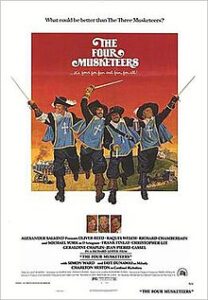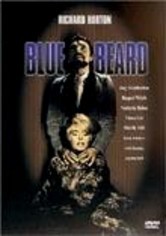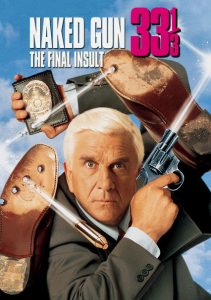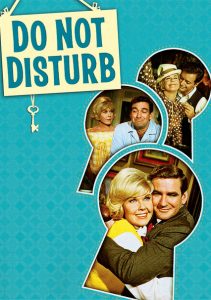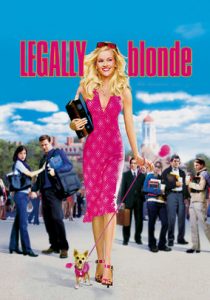The Four Musketeers-1974
Director Richard Lester
Starring Oliver Reed, Michael York, Faye Dunaway
Scott’s Review #1,379
Reviewed July 17, 2023
Grade: B
The Four Musketeers (1974) is a sequel to the film The Three Musketeers made a mere year earlier. It takes the second half of the famous novel by French author Alexandre Dumas with the original film covering the first half.
A recommendation is to watch the sequel directly after the original so there is less struggle to figure out what is going on. I did not do that so connecting the plot points was a struggle.
A further negative is the omission of any English subtitles making hearing or ascertaining the events of the film difficult. British accents are tough.
King Louis XIII’s (Jean-Pierre Cassel) four swashbuckling heroes engage in chivalrous and daring adventures when Cardinal Richelieu (Charlton Heston) and his evil accomplice Milady de Winter (Faye Dunaway), kidnap the queen’s dressmaker, Constance (Raquel Welch).
The heroes are D’Artagnan (Michael York), Athos (Oliver Reed), Porthos (Frank Finlay), and Aramis (Richard Chamberlain).
It’s a British swashbuckler film so the adventures are prevalent and the physical comedy is fast and furious. It’s like a sitcom at times with over-the-top and outlandish fight sequences and one-liners.
The frequent low-cut tops on the female characters are intended to channel the male viewer’s thirteen-year-old boy.
The film gets darker than I anticipated in the final act which is to its credit with two deaths. This surprised me in a good way because so much of The Four Musketeers is light-hearted.
The death by the beheading of a major character is well-done. The heroes watch an executioner perform his duties to the fiendish character from across a lake. The decapitation is not exactly shown but it’s done almost in a tremendously effective silhouette and from a distance.
The costumes and attention to detail from a historic perspective are superior elements of the film. One can imagine being in the French countryside during the Anglo-French War in the 1600s. The sets and lighting are bright so the result is colorful and picturesque style.
The cast is made up of several A-list Hollywood stars of the time and each adequately does their share to light up the screen. My favorites are Dunaway as the villainess and Reed as a ‘good guy’, a refreshing change for the actor who usually appears as the heavy.
Reed and Dunaways share some scenes mostly in flashbacks that made me want to see more of their romance but this is not to be. Athos was unaware that Milady de Winter was a criminal which left a permanent branding mark.
Still, what little I got featured tremendous chemistry between the pair and I would have liked to have seen more.
Where the film loses me a bit is with the silliness which follows the same formula that made The Three Musketeers a success. Feeling redundant were the endless sword fight scenes and tongue-in-cheek winking.
The film tries hard to be a comedy but adds in darker moments too so it leaves an unbalanced quality.
Some actors get short shrift. Christopher Lee as Count De Rouchfort is a secondary villain and has little to do except prance around in a wig, uniform, and eye patch. His character is no Dracula and does not feel dangerous.
The Four Musketeers (1974) is good entertainment from a solidly professional cast. Hardly a masterpiece it’s a bang ’em up comedy adventure with a few moments of death and destruction.
